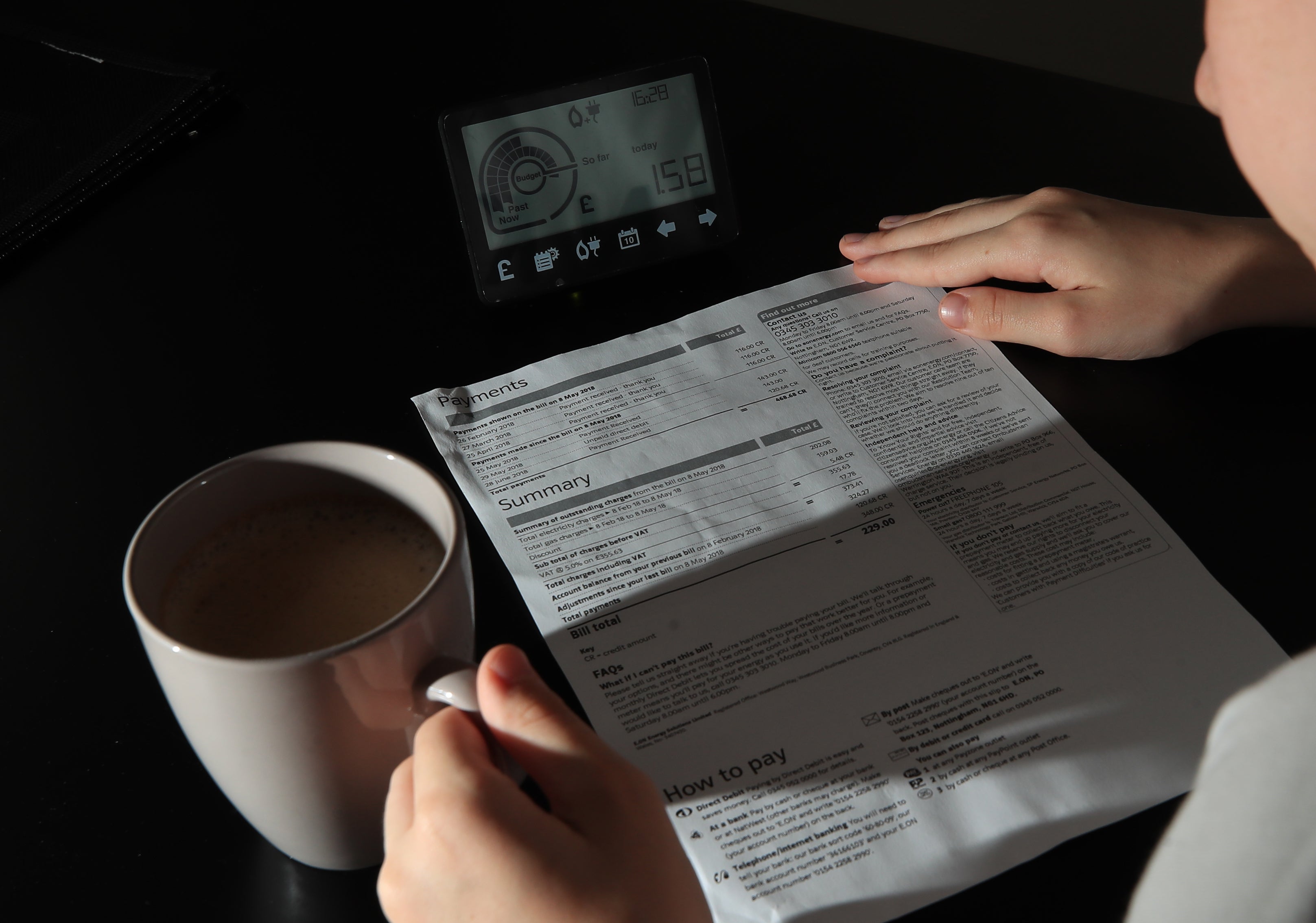Lewis and Javid oppose using windfall tax to battle cost-of-living crisis
The Government is under pressure to bring in a one-off levy on corporations which have benefited from globally high oil and gas prices.

Your support helps us to tell the story
From reproductive rights to climate change to Big Tech, The Independent is on the ground when the story is developing. Whether it's investigating the financials of Elon Musk's pro-Trump PAC or producing our latest documentary, 'The A Word', which shines a light on the American women fighting for reproductive rights, we know how important it is to parse out the facts from the messaging.
At such a critical moment in US history, we need reporters on the ground. Your donation allows us to keep sending journalists to speak to both sides of the story.
The Independent is trusted by Americans across the entire political spectrum. And unlike many other quality news outlets, we choose not to lock Americans out of our reporting and analysis with paywalls. We believe quality journalism should be available to everyone, paid for by those who can afford it.
Your support makes all the difference.Two Cabinet ministers have voiced their objections to imposing a windfall tax on oil and gas firms to address the cost-of-living crisis.
Prime Minister Boris Johnson has come under pressure to introduce a one-off levy on firms which have benefited from globally high oil and gas prices and use the revenue to fund measures to ease the cost-of-living crisis on households struggling with rising bills.
Chancellor Rishi Sunak has not ruled out the tax, though Northern Ireland Secretary Brandon Lewis said such a move “doesn’t really work”.
“It puts off investment both in that sector and, absolutely, the risk in others,” he told the Telegraph.
“So we’d be very, very wary of a windfall tax. What we want to see is companies using the money they’ve got to invest, particularly in that industry.”
Health Secretary Sajid Javid also weighed in, saying he is “instinctively” opposed to imposing the levy.
Addressing the Welsh Conservative conference on Saturday, Mr Javid said: “You just mentioned the windfall tax idea. Instinctively I don’t like it. I just think we’ve got to be really careful.
“As a country, we have a very hard-won but strong reputation on being pro-business, welcoming investment.
“Businesses like certainty and of course there’s no such thing as pure certainty, but when it comes to taxes, I think we’ve just got to be really careful with these sudden taxes that could have an impact in the long term that we would come to regret.”
Mr Johnson has said he cannot “magic away” all the soaring food and energy expenses, instead vowing on Friday to use the “firepower” of Government to “put our arms around people” as it did during the coronavirus pandemic.
Jacob Rees-Mogg, meanwhile, has also mounted opposition from within the Cabinet as he argued it is wrong to raid the “honey pot of business”.
The Brexit opportunities minister said the one-off measure on North Sea firms would ultimately see the public pay more tax.
Mr Johnson has not ruled out the move, instead urging firms to invest their soaring profits, and Downing Street hinted a decision would be coming “soon”.
Labour leader Sir Keir Starmer argues a Government U-turn on opposition to a windfall tax is “inevitable” as it would “raise billions of pounds, cutting energy bills across the country”.
The idea of a windfall tax has gained popularity because energy firms are seeing soaring profits due to rising consumer prices, as fuelled by the pandemic and the war in Ukraine.
Labour has argued a windfall tax could fund a VAT cut on energy bills and an increase in the warm home discount for those on a low income.
Offshore Energies UK, the energy industry’s trade body, has said the tax would put investment and jobs at risk.